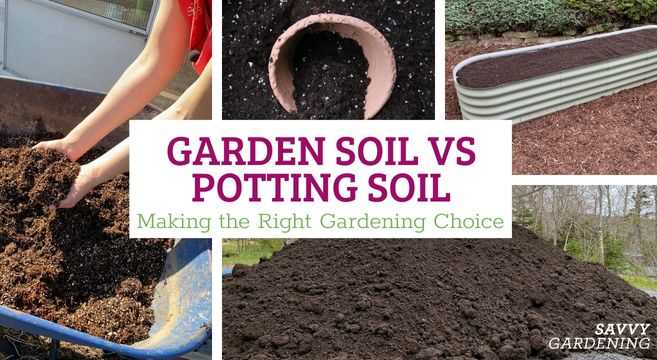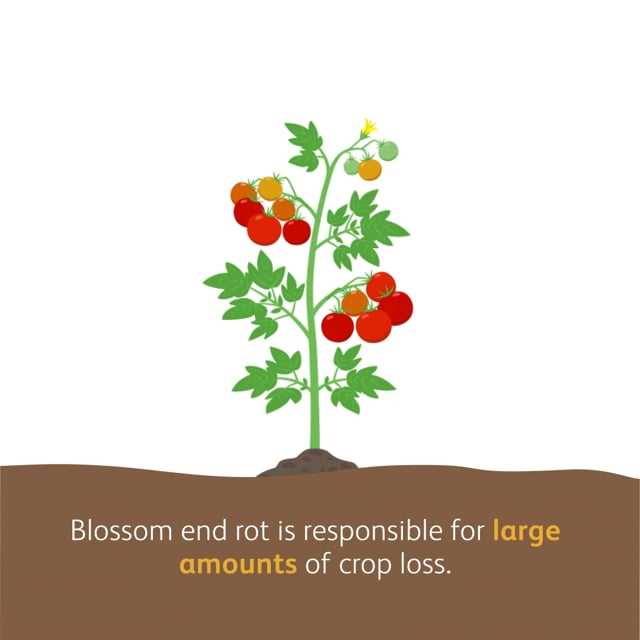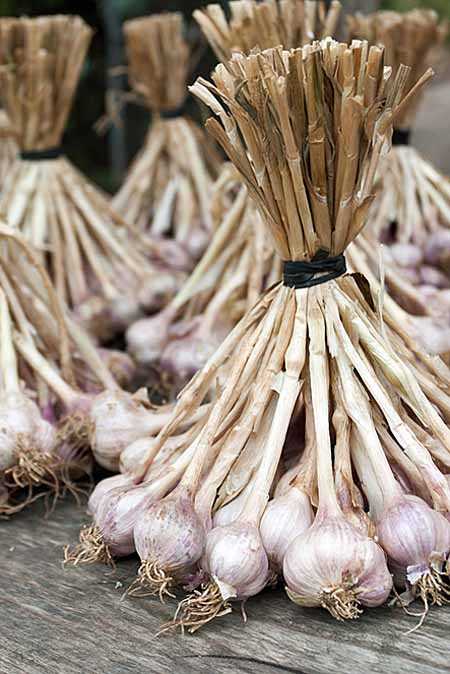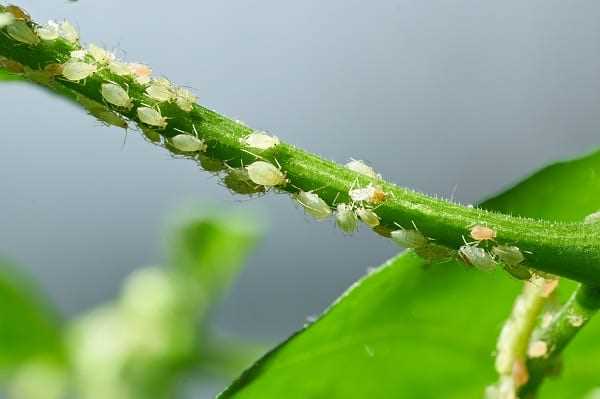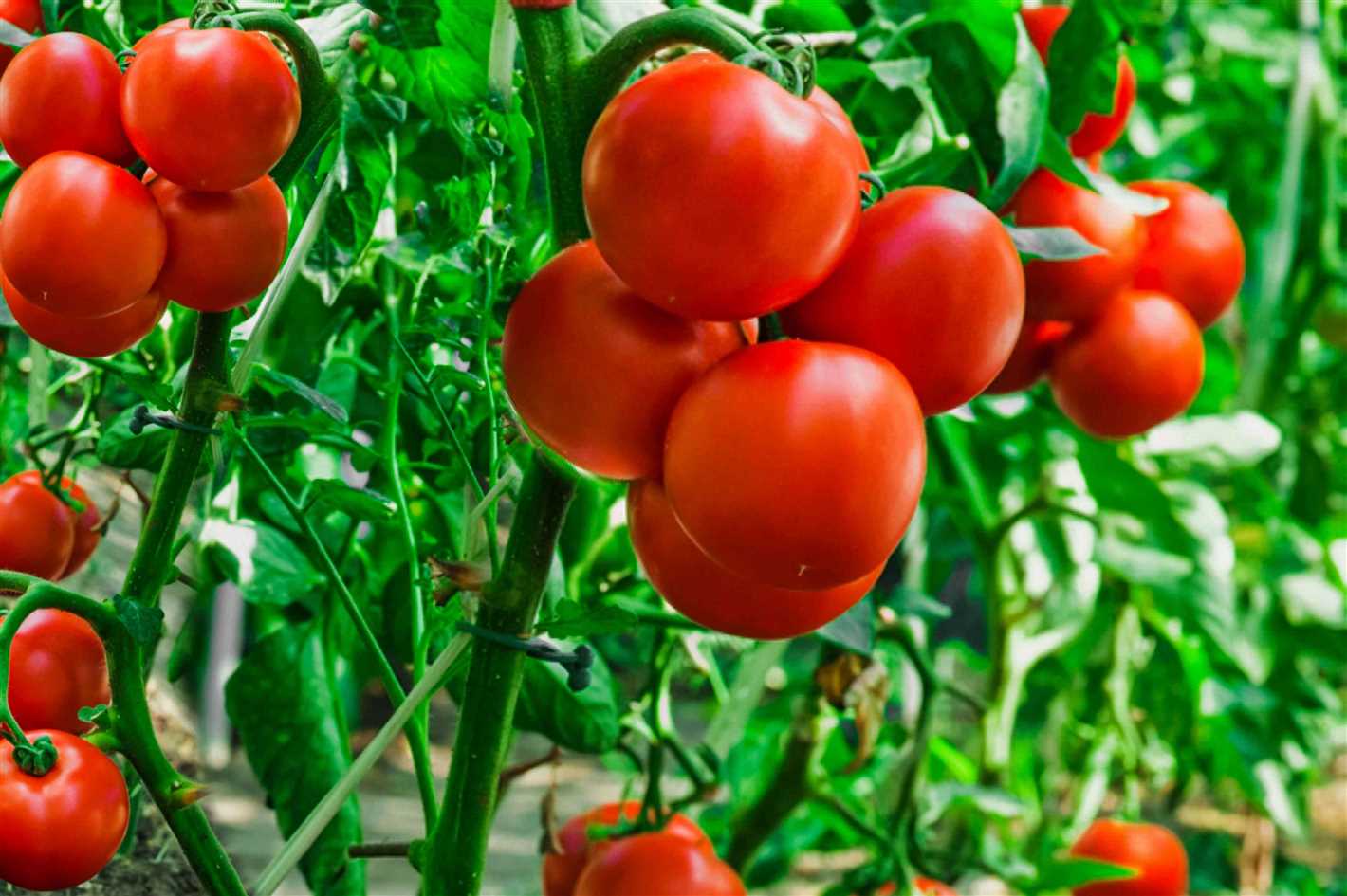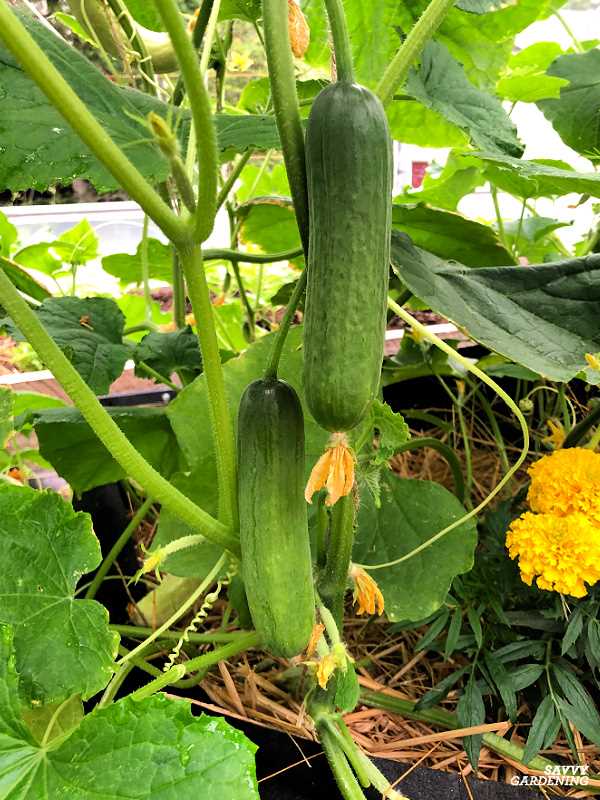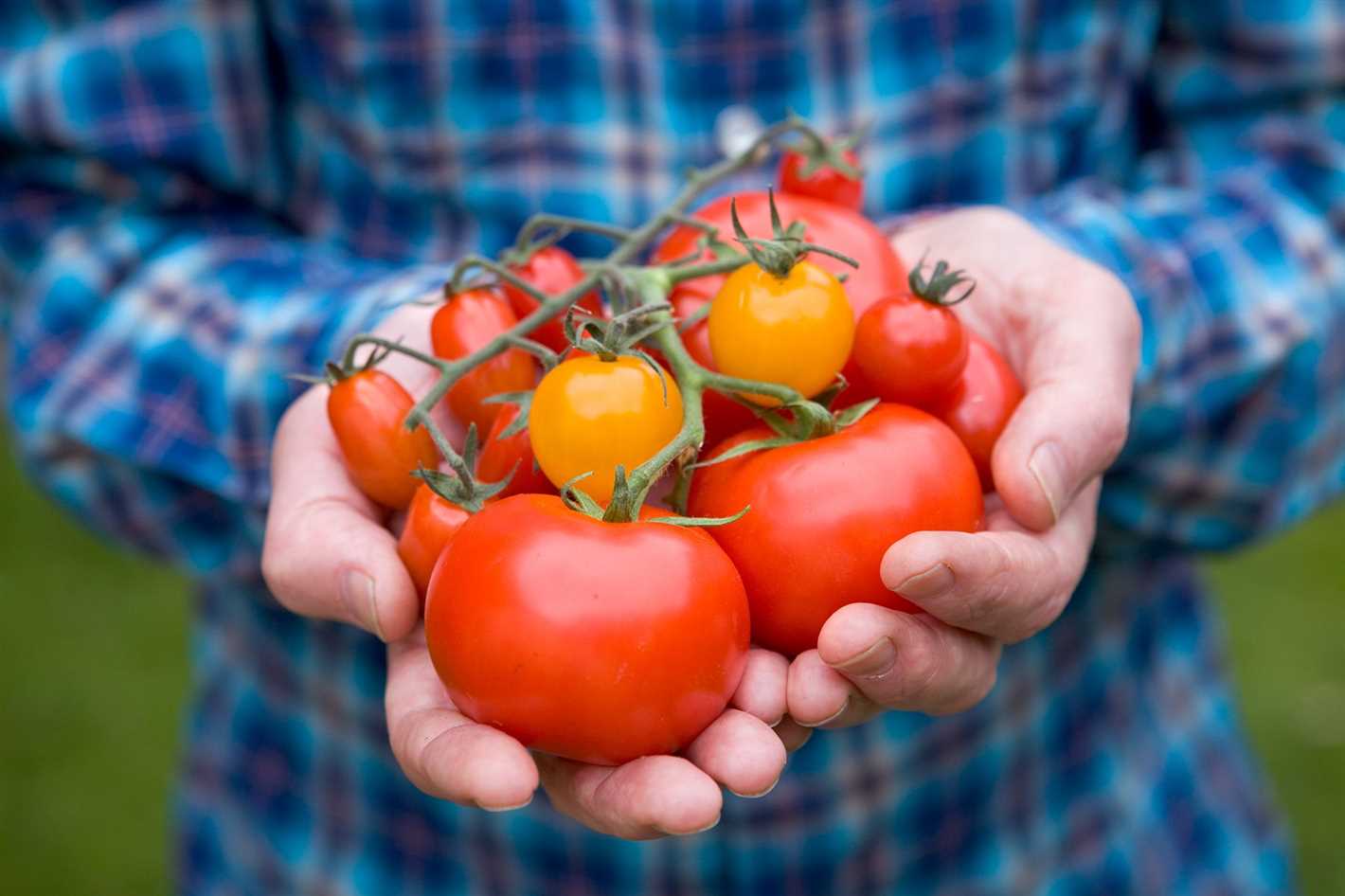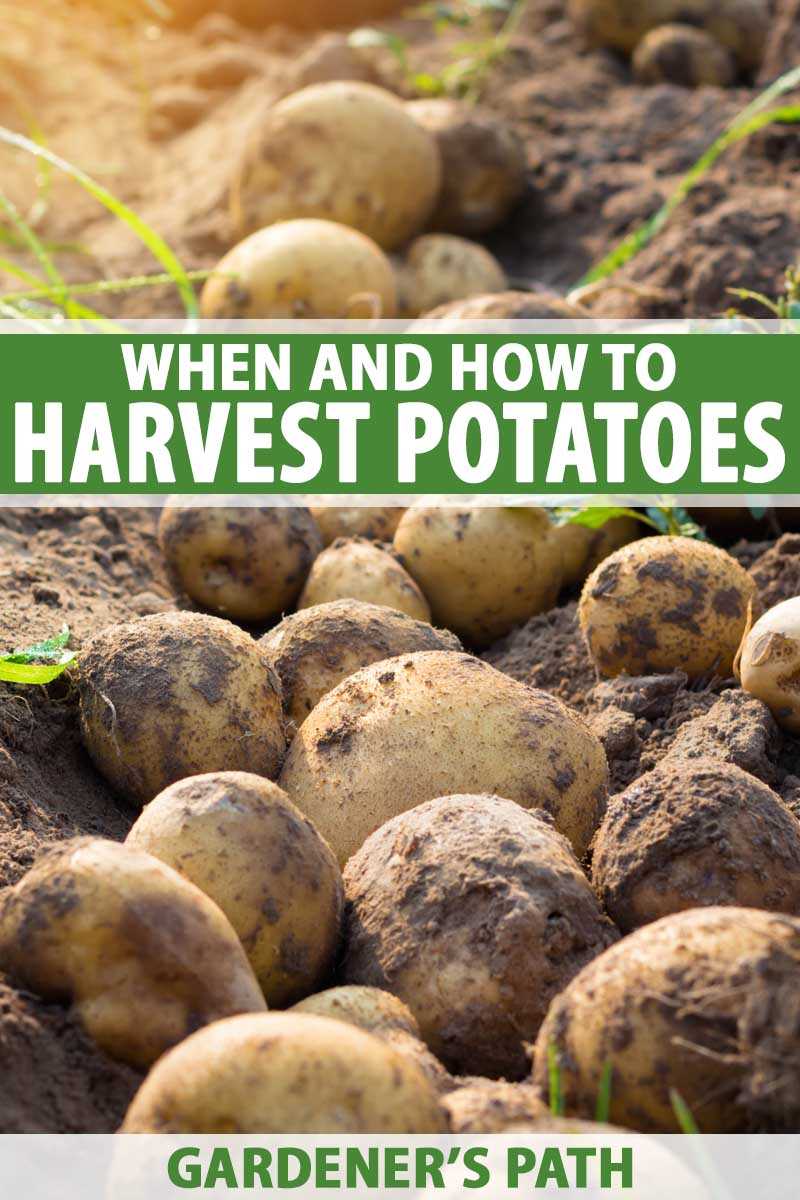- The Benefits of Using Eggshells as Natural Fertiliser
- Improved Soil Health
- Rich in Nutrients
- Encourages Root Growth
- Prevents Soil Erosion
- Natural Pest Deterrent
- 1. Crushed Eggshells
- 2. Eggshell Powder
- 3. Aphid Control
- 4. Protect Seedlings
- 5. Companion Planting
- Environmentally Friendly
- Cost-effective Solution
- Easy to Use
- “Question-Answer”
- What are some benefits of using eggshells as natural fertiliser for vegetable plants?
- How can I use eggshells as natural fertiliser for my vegetable plants?
- Can I use eggshells as fertiliser for all types of vegetables?
- Do I need to wash the eggshells before using them as fertiliser?
- How long does it take for eggshells to break down and release their nutrients?
- Are there any plants that do not benefit from eggshell fertiliser?
- What are some other uses for eggshells in gardening?
- “Video” Make Effective Organic Fertilizer | How to prepare and Apply to Any Plants
When it comes to growing healthy vegetable plants, using natural fertilisers can be a great way to promote growth and improve the overall health of your crops. One such natural fertiliser that may surprise you is eggshells. Yes, those leftover eggshells from breakfast can be a valuable resource in the garden!
Eggshells are rich in calcium, which is a vital nutrient for plant health. Calcium helps to strengthen cell walls, promote root development, and reduce the likelihood of diseases like blossom-end rot in tomatoes. By incorporating crushed eggshells into your soil, you can provide your vegetable plants with an extra boost of this essential mineral.
In addition to calcium, eggshells also contain small traces of other minerals like magnesium, potassium, and phosphorus. These minerals are necessary for various plant functions, such as photosynthesis, energy production, and nutrient absorption. By adding eggshells to your garden, you’re essentially recycling these beneficial minerals back into the soil, ensuring that your vegetable plants have access to them.
Crushing eggshells is easy and can be done with a mortar and pestle, or even by placing the shells in a plastic bag and using a rolling pin to crush them. Once crushed, simply sprinkle the eggshells around the base of your vegetable plants and gently work them into the soil. Over time, the eggshells will break down, releasing their nutrients and improving the overall structure of the soil.
In conclusion, using eggshells as a natural fertiliser for your vegetable plants is a simple and effective way to promote their health and growth. By recycling these kitchen scraps, you can provide your plants with the essential nutrients they need for optimal development. So, don’t throw away those eggshells – put them to good use in your garden!
The Benefits of Using Eggshells as Natural Fertiliser
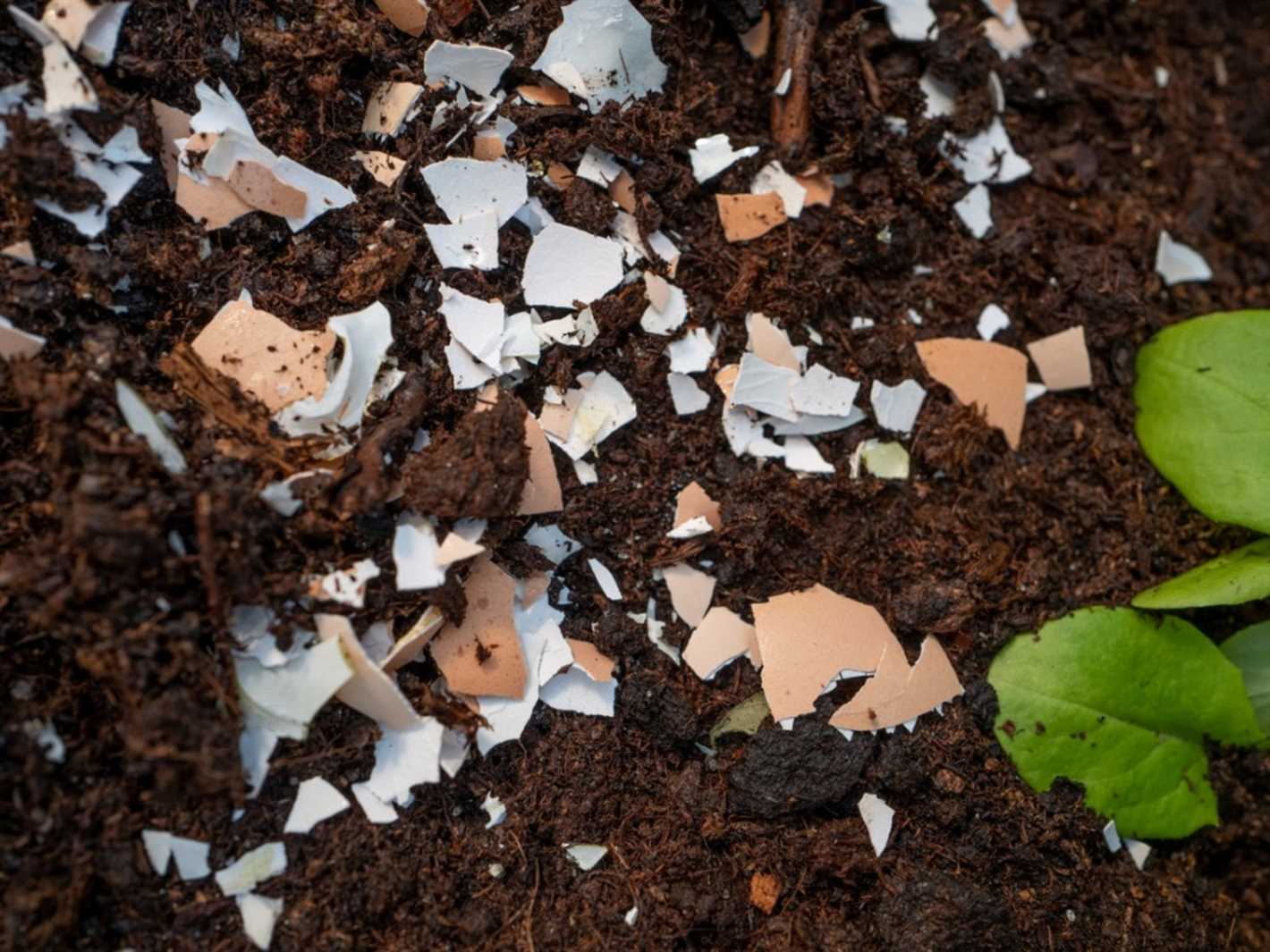
Using eggshells as natural fertiliser for your vegetable plants has several benefits:
- Rich in calcium: Eggshells are an excellent source of calcium, which is an essential nutrient for plants. Adding crushed eggshells to the soil helps replenish calcium levels and promotes strong and healthy plant growth.
- Nutrient-rich: In addition to calcium, eggshells also contain other important nutrients such as magnesium, potassium, and phosphorus. These nutrients are vital for plant development and overall health.
- Slow-release of nutrients: When eggshells are crushed and added to the soil, they gradually release the nutrients over time. This slow-release mechanism ensures that the plants receive a steady supply of nutrients, promoting continuous growth and preventing nutrient deficiencies.
- Organic and eco-friendly: Using eggshells as fertiliser is a natural and organic practice. It reduces the need for synthetic fertilisers, which can be harmful to the environment. Eggshells are a sustainable and eco-friendly alternative that helps reduce waste.
- Pest deterrent: The sharp edges of crushed eggshells act as a barrier against pests, such as slugs and snails. These pests are deterred by the rough texture, making it difficult for them to crawl over the eggshells and reach the plants.
- Improves soil structure: Eggshells contribute to improving the soil structure by adding bulk, enhancing drainage, and increasing aeration. This improves the overall health of the soil, making it more conducive for plant growth.
Overall, using eggshells as natural fertiliser benefits both the plants and the environment. It provides essential nutrients, improves soil quality, and helps reduce waste, making it a sustainable and eco-friendly option for gardeners.
Improved Soil Health
Using eggshells as natural fertiliser not only provides essential nutrients for plant growth, but it also helps improve soil health. The high calcium content in eggshells can neutralize acidic soils and improves soil structure. Here are some ways eggshells can contribute to improved soil health:
- Nutrient-rich soil: Eggshells are rich in calcium, magnesium, and potassium, which are essential nutrients for plant growth. When crushed into small pieces, eggshells release these nutrients slowly into the soil, providing a continuous supply of minerals for the plants.
- Enhanced soil structure: Adding crushed eggshells to the soil helps improve its structure. The tiny eggshell fragments create air pockets and increase the porosity of the soil, allowing better drainage and root penetration. This enhances the overall health of the plant.
- Soil pH adjustment: Eggshells are alkaline in nature and can help neutralize acidic soils. By adding crushed eggshells to the soil, you can raise its pH level and create a more balanced environment for plant growth. However, it’s important to note that eggshells alone may not be enough to drastically change the soil pH, especially in highly acidic conditions.
- Reduction of soil compaction: The addition of eggshells to the soil can help reduce compaction. The small particles of eggshells create tiny spaces within the soil, allowing for better water infiltration and root development. This, in turn, improves plant nutrient uptake and overall plant health.
- Promotion of beneficial soil microorganisms: Eggshells can also contribute to the growth of beneficial soil microorganisms. These microorganisms play a crucial role in breaking down organic matter and releasing nutrients for plant uptake. By providing a source of calcium, eggshells can support the growth and activity of these microorganisms, improving soil fertility in the long run.
The use of eggshells as natural fertiliser not only benefits vegetable plants but also helps maintain a healthy and sustainable soil ecosystem. By recycling kitchen waste and utilizing eggshells, you can enhance your garden’s soil health and promote vibrant plant growth.
Rich in Nutrients
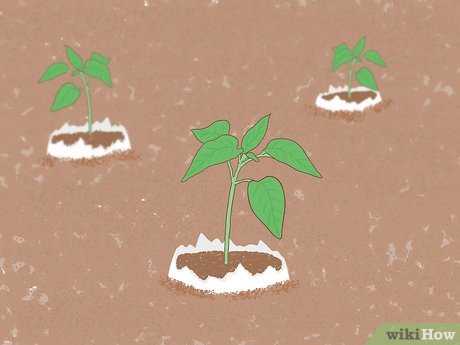
Eggshells are a fantastic source of nutrients for plants. They contain high amounts of calcium, which is essential for plant growth and development. Calcium helps strengthen cell walls, promotes root growth, and aids in the uptake of other important nutrients.
In addition to calcium, eggshells also contain smaller amounts of other essential plant nutrients such as magnesium, potassium, and phosphorus. These nutrients contribute to overall plant health and help with various biological processes like photosynthesis, enzyme activation, and energy transfer within the plant.
When eggshells are used as a natural fertilizer, they provide a slow-release source of nutrients that can benefit plants over an extended period of time. This slow-release action ensures that the nutrients are gradually released into the soil, reducing the risk of nutrient runoff or leaching.
Furthermore, eggshells can also help to adjust soil pH levels. In general, eggshells are considered neutral, but they can have a slightly alkaline effect on acidic soils. This can be beneficial for plants that prefer slightly alkaline conditions, such as tomatoes and peppers.
Overall, the rich nutrient content of eggshells makes them an excellent choice for organic gardeners looking to provide their vegetable plants with essential minerals and improve overall plant health.
Encourages Root Growth
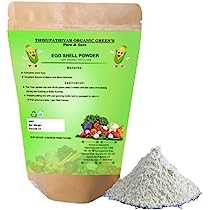
Eggshells contain calcium, which is essential for strong and healthy root growth in vegetable plants. Calcium helps to strengthen cell walls and promote new cell division, leading to overall stronger and more resilient roots.
When eggshells are crushed and added to the soil, they slowly release calcium into the surrounding area. This gradual release ensures that the calcium is available to the plants over an extended period of time, allowing for consistent root development throughout the growing season.
Furthermore, the calcium in eggshells also helps to balance the pH level of the soil. Maintaining the proper pH level is crucial for nutrient uptake by the roots. By providing a balanced pH environment, eggshells enhance the plant’s ability to absorb other essential nutrients, further promoting root growth and overall plant health.
In addition to calcium, eggshells also contain other beneficial minerals such as magnesium and potassium. These minerals contribute to the overall nutrient content of the soil, providing additional support for root development.
- Calcium in eggshells strengthens cell walls and promotes new cell division
- Slow release of calcium ensures consistent root development
- Helps balance pH level of the soil for optimal nutrient uptake
- Contains other minerals like magnesium and potassium for enhanced nutrient content
Overall, adding crushed eggshells to the soil is a natural and effective way to encourage root growth in vegetable plants. By providing essential minerals and promoting optimal pH levels, eggshells contribute to the overall health and vigor of the plants, leading to increased yields and better quality crops.
Prevents Soil Erosion
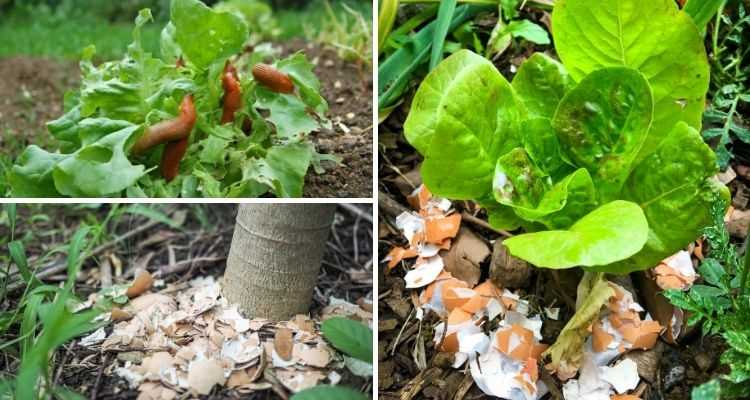
Eggshells can also help prevent soil erosion in vegetable gardens. Soil erosion occurs when soil particles are washed or blown away, leaving the top layer of soil exposed and vulnerable. This can be a significant issue for vegetable plants as it can lead to nutrient loss, decreased soil fertility, and reduced plant growth.
When eggshells are added to the soil, they can act as a protective barrier, preventing erosion and helping to maintain the stability of the soil. The coarse texture of the crushed eggshells helps to create a layer that allows moisture to penetrate, but also prevents excess water runoff.
In addition, the calcium content in eggshells plays a vital role in maintaining soil structure. Calcium helps to bind soil particles together, making them less prone to erosion. This can be especially beneficial in vegetable gardens where constant digging, watering, and weeding may disturb the soil.
By incorporating eggshells into the soil, gardeners can create a natural and effective solution to prevent soil erosion and promote long-term soil health.
Natural Pest Deterrent
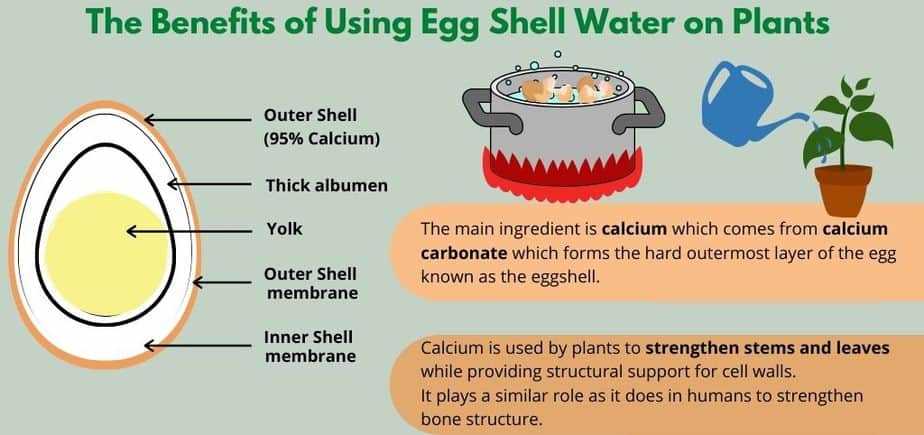
Eggshells can also be used as a natural pest deterrent in your vegetable garden. Here are some ways you can use eggshells to keep pests away from your plants:
1. Crushed Eggshells
Crush your saved eggshells into small pieces and sprinkle them around the base of your plants. This will create a barrier that pests, such as slugs and snails, will find difficult to crawl over. The sharp edges of the crushed eggshells can be uncomfortable for these pests, deterring them from reaching your plants.
2. Eggshell Powder
You can also grind your eggshells into a fine powder using a blender or food processor. Sprinkle the eggshell powder around your plants to repel pests. The powder will stick to the bodies of insects, making it difficult for them to move, feed, or lay eggs on your plants. This method is effective against aphids, caterpillars, and beetles.
3. Aphid Control
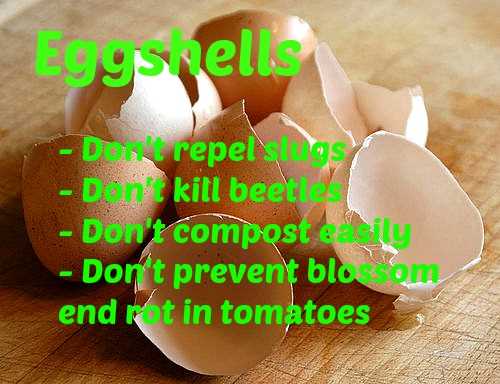
If your plants are infested with aphids, you can use a spray made from eggshells to control them. Boil a handful of crushed eggshells in a liter of water for about 20 minutes. Let it cool, strain the mixture, and pour it into a spray bottle. Spray this solution directly on the leaves and stems of your plants to repel aphids.
4. Protect Seedlings
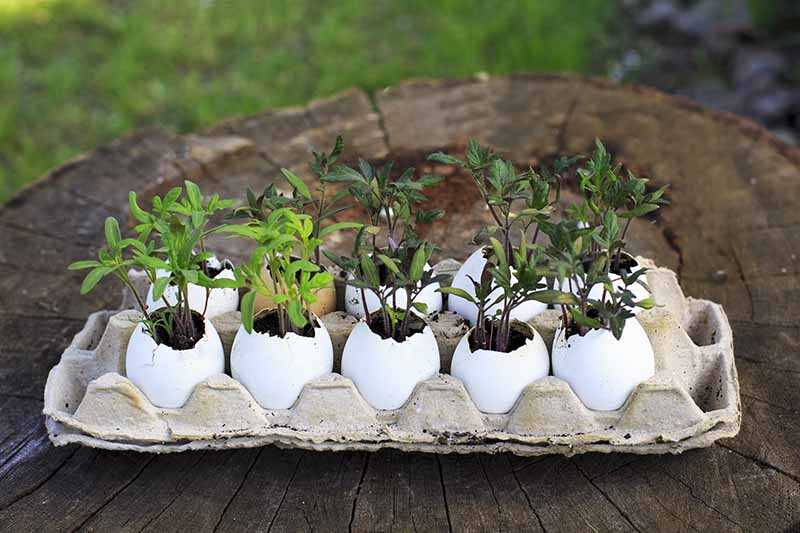
When starting your vegetable garden from seeds, you can use eggshells as small individual planters. Fill each half of an eggshell with soil and plant a seed in it. The eggshell provides protection to the seedling and acts as a natural pest repellent. Once the seedling is ready, you can plant the entire eggshell in the ground, as it will decompose and provide additional nutrients to the soil.
5. Companion Planting
Eggshells can also be used as a companion planting method to deter pests. Planting crops that pests are attracted to, such as broccoli or lettuce, near crops that pests dislike, such as tomatoes or onions, can help keep pests away. Surround your pest-attracting crops with crushed eggshells to create a barrier that pests are less likely to cross.
By using eggshells as a natural pest deterrent, you can protect your vegetable plants from common pests without resorting to harmful chemicals. Plus, you’ll be recycling a commonly discarded item and providing additional nutrients to your soil. Give it a try and enjoy a healthy and pest-free garden!
Environmentally Friendly
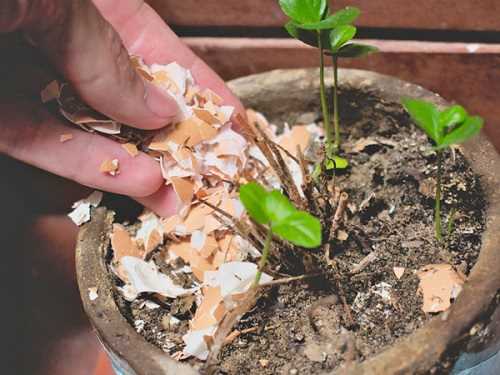
Using eggshells as natural fertiliser is not only beneficial for your vegetable plants, but it is also environmentally friendly. By using eggshells in your garden, you are recycling a waste product that would otherwise end up in a landfill. This not only reduces waste but also helps in conserving the environment.
Here are some reasons why using eggshells as natural fertiliser is environmentally friendly:
- Reduces landfill waste: Eggs are a common household item, and their shells make up a significant portion of the waste we generate. Instead of throwing them away, using them as fertiliser reduces the amount of waste that goes into landfills.
- Avoids chemical fertilisers: Chemical fertilisers are commonly used in conventional farming practices. These fertilisers can have harmful effects on the environment by polluting water sources and disrupting ecosystems. By using eggshells, you can avoid the use of chemical fertilisers and promote an eco-friendly approach to gardening.
- Natural and sustainable: Eggshells are an organic and natural source of nutrients for plants. They contain essential minerals like calcium, potassium, and magnesium, which are beneficial for plant growth. By incorporating eggshells into your garden, you are ensuring a sustainable and natural way of nourishing your plants.
- Improves soil health: Eggshells can help improve the overall health of your garden soil. When they are crushed and added to the soil, they help increase its nutrient content and enhance its ability to retain moisture. This, in turn, promotes the growth of healthy and strong vegetable plants.
- Encourages natural processes: Using eggshells as natural fertiliser encourages the natural processes that occur in the soil. It provides a slow-release source of nutrients that is readily absorbed by the plants. This mimics the natural cycle of nutrient recycling and promotes a healthy and balanced ecosystem in your garden.
In conclusion, using eggshells as natural fertiliser is an environmentally friendly choice for your vegetable plants. It helps reduce waste, avoids the use of harmful chemical fertilisers, and promotes a sustainable and natural approach to gardening. By incorporating eggshells into your garden, you can contribute to a healthier environment while enjoying the benefits of healthy and productive vegetable plants.
Cost-effective Solution
Using eggshells as a natural fertiliser is not only beneficial for your vegetable plants but also a cost-effective solution. Eggshells are readily available in most households and are usually considered waste. Instead of throwing them away, you can collect and use them to improve the health of your plants.
Compared to commercially available fertilisers, using eggshells is a more affordable option. It eliminates the need to spend money on artificial chemicals while still providing essential nutrients to your plants.
Eggshells act as a slow-release fertiliser, meaning they release nutrients gradually over time. This can help maintain a steady supply of nutrients to your plants, reducing the need for frequent fertiliser applications.
In addition to being cost-effective, using eggshells as a natural fertiliser also reduces waste. By repurposing eggshells, you are contributing to the environment by diverting waste from landfills. It is a sustainable and eco-friendly solution for maintaining healthy vegetable plants.
Overall, using eggshells as a natural fertiliser provides a cost-effective and sustainable solution for promoting the growth and health of your vegetable plants. It is a simple and accessible method that can benefit both your garden and the environment.
Easy to Use
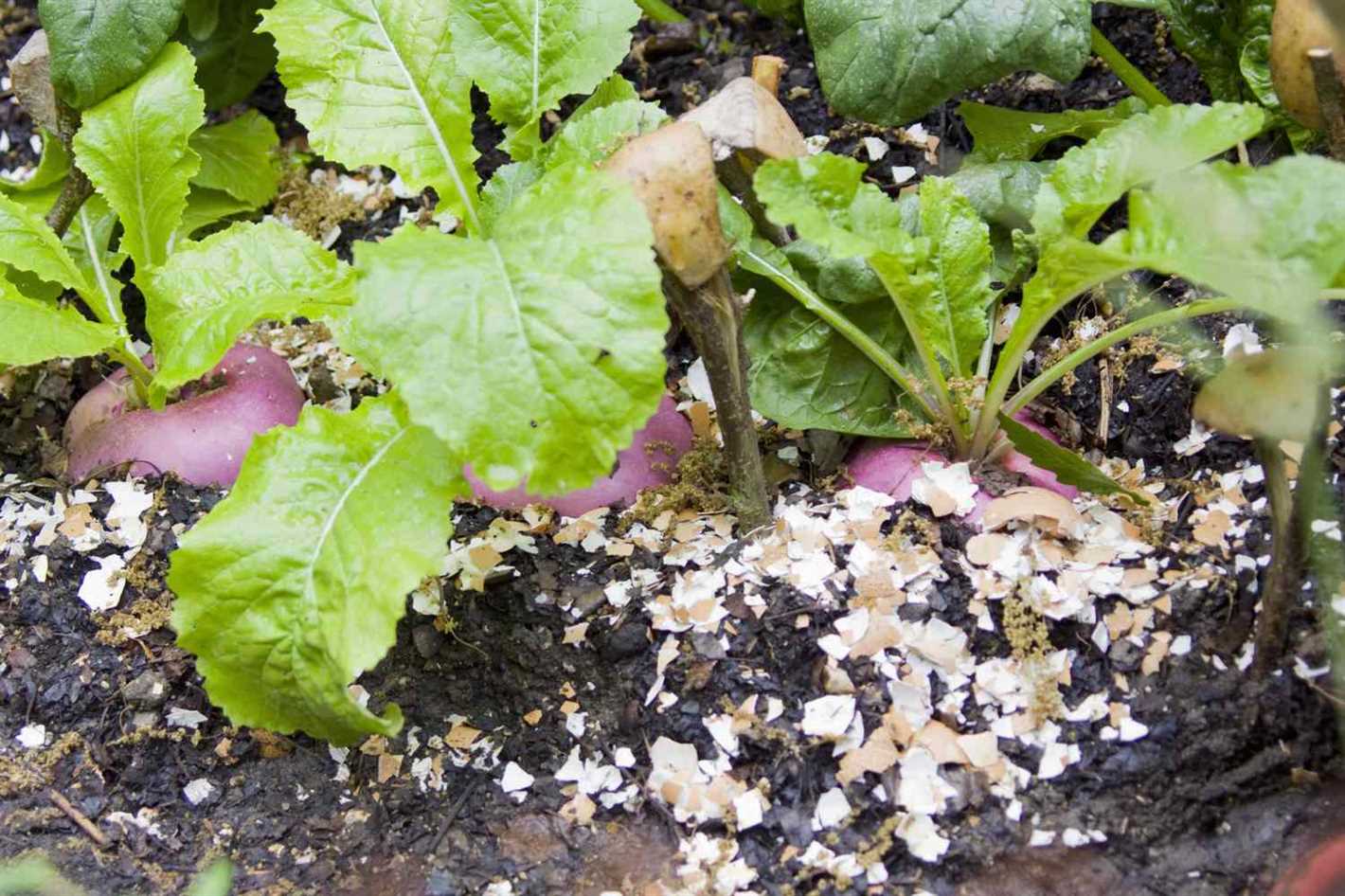
Using eggshells as natural fertiliser for your vegetable plants is incredibly easy. Here is a simple step-by-step process:
- Save your eggshells after cooking and eating eggs. Rinse them thoroughly to remove any residual egg white or yolk.
- Allow the eggshells to dry completely. This can be done by spreading them out on a tray or a paper towel and leaving them in a well-ventilated area for a few days.
- Once dry, crush the eggshells into small pieces. You can do this by using a mortar and pestle, or by placing the shells in a plastic bag and crushing them with a rolling pin or a heavy object.
- Spread the crushed eggshells around the base of your vegetable plants. Aim for an even distribution without piling the shells too close to the stems.
- Water your plants as usual, allowing the soil to absorb the nutrients from the eggshells.
Note: It’s important to crush the eggshells into small pieces to facilitate their decomposition and nutrient release. Larger pieces may take longer to break down and release their beneficial minerals.
Tip: You can also grind the crushed eggshells into a fine powder using a blender or food processor. This powdered form can be mixed directly into the soil or added to your compost heap for a slow release of nutrients over time.
So there you have it! Using eggshells as natural fertiliser is a simple and effective way to provide your vegetable plants with the essential minerals they need for healthy growth.
“Question-Answer”
What are some benefits of using eggshells as natural fertiliser for vegetable plants?
Eggshells are a great source of calcium, which helps strengthen the cell walls of plants and promotes healthy root development. They also contain other essential nutrients like magnesium and potassium, and act as a slow-release fertiliser, providing nutrients to plants over time.
How can I use eggshells as natural fertiliser for my vegetable plants?
You can start by crushing the eggshells into small pieces and adding them directly to the soil. Alternatively, you can also make an eggshell tea by boiling crushed eggshells in water and using the resulting liquid to water your plants. Another option is to blend eggshells into a powder and mix it with compost or soil before planting.
Can I use eggshells as fertiliser for all types of vegetables?
Yes, you can use eggshells as natural fertiliser for all types of vegetables. The calcium and other nutrients found in eggshells are beneficial for the growth of various vegetable plants, including leafy greens, tomatoes, peppers, and root vegetables.
Do I need to wash the eggshells before using them as fertiliser?
It is recommended to wash the eggshells before using them as fertiliser to remove any residual egg whites or bacteria. Simply rinse the eggshells with water and allow them to air dry before crushing or grinding them.
How long does it take for eggshells to break down and release their nutrients?
Eggshells are slow-release fertilisers, so it can take several months for them to fully break down and release their nutrients into the soil. However, crushed eggshells can still provide some immediate benefits to plants, such as deterring pests like slugs and snails.
Are there any plants that do not benefit from eggshell fertiliser?
While eggshells are generally beneficial for most plants, there are a few exceptions. Acid-loving plants like blueberries and azaleas prefer acidic soil, and the calcium in eggshells may raise the pH levels too much for their liking. It’s best to research the specific needs of your plants before using eggshells as fertiliser.
What are some other uses for eggshells in gardening?
In addition to using eggshells as natural fertiliser, they can also be used as a natural pest deterrent. Crushed eggshells sprinkled around plants can help repel slugs, snails, and other soft-bodied pests. Eggshells can also be used in composting to add calcium and other minerals to the compost pile.
